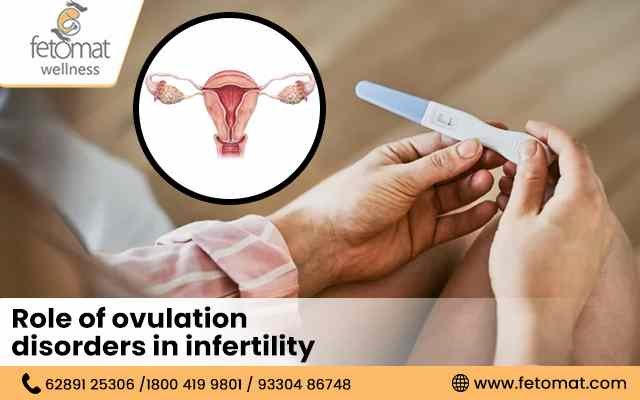Infertility is a challenging issue that many couples face when trying to conceive. There are various factors that can contribute to infertility, and one crucial aspect often overlooked is ovulation. Ovulation disorders play a significant role in a woman’s ability to get pregnant. Here, the doctors of the best fertility centre in Kolkata have discussed the intricacies of ovulation and its connection to infertility.
Understanding Ovulation
Ovulation is a fundamental part of the menstrual cycle, where a mature egg gets released from a woman’s ovary. This process is regulated by a complex interplay of hormones, primarily luteinizing hormone (LH) and follicle-stimulating hormone (FSH). These hormones trigger the release of an egg from a mature follicle, which is then ready for fertilization.
Ovulation Disorders
As per the doctors of the best fertility clinic for women, ovulation disorders occur when this process is disrupted, leading to irregular or absent ovulation. There are several types of ovulation disorders, and they can be attributed to various causes:
1. Polycystic Ovary Syndrome (PCOS): PCOS refers to a common cause of ovulation disorders. Women with PCOS often have enlarged ovaries with small cysts and experience hormonal imbalances. These imbalances can lead to irregular ovulation or anovulation (lack of ovulation).
2. Hypothalamic Dysfunction: The hypothalamus in the brain plays a vital role in regulating ovulation. Stress, excessive exercise, or low body weight can disrupt the functioning of the hypothalamus, causing ovulation irregularities.
3. Premature Ovarian Failure (POF): POF is characterized by the loss of one’s ovarian function prior to the age of 40. Women with POF may experience erratic or absent ovulation due to a decrease in the number of viable eggs.
4. Hyperprolactinemia: Elevated levels of the hormone prolactin can interfere with ovulation. This condition can be caused by some medications or underlying health issues, such as pituitary tumours.
The Impact on Fertility
Ovulation disorders can significantly impact a woman’s fertility. Without regular ovulation, the chances of getting pregnant naturally are greatly reduced. If a woman doesn’t ovulate, there is no egg available for fertilization, making conception impossible.
High levels of androgens in PCOS, for instance, can result in insulin resistance, which can affect the chances of successful implantation.
Diagnosis and Treatment
Fertility test for women play a key role in identifying ovulation disorders and initiating treatments like:
1. Medications: Hormonal medications can help induce ovulation in many cases. These drugs are often prescribed to women with PCOS.
2. Ovulation Induction: In some cases, ovulation can be induced through the administration of hormone injections or medications.
3. Surgery: Surgical interventions may be considered for conditions like polycystic ovaries.
4. In Vitro Fertilization (IVF): In cases of severe ovulation disorders or when other treatments have not been successful, IVF may be recommended. IVF involves the retrieval of eggs and their fertilization outside the body before implantation in the uterus.
Conclusion
If you are facing fertility issues, consult a doctor from the best fertility centre to explore the most suitable options for addressing your ovulation disorder. With the right treatment, your dream of parenthood can become a reality.

